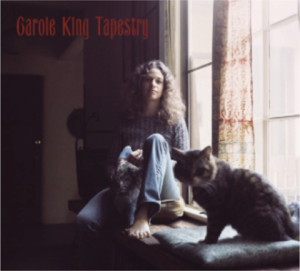 Carole King is having a moment. This month marks the 45th anniversary of the release of acclaimed singer-songwriter’s landmark solo album, “Tapestry,” one of the biggest selling records of all time.
Carole King is having a moment. This month marks the 45th anniversary of the release of acclaimed singer-songwriter’s landmark solo album, “Tapestry,” one of the biggest selling records of all time.
To honor the occasion, PBS is unspooling a new documentary, “Carole King: Natural Woman,” in which King tells her own story interspersed with previously unseen footage, rare performance videos and home movies along with interviews with those who were part of the journey of her life and career.
While millions may know the words to her famous hit songs including “It’s Too Late,” “I Feel the Earth Move” and “You’ve Got a Friend,” she herself as an artist and as a person has not been as well known, until the past few years.
The hour-long documentary, directed by George Scott, is sort of a television companion piece to the hit Broadway show “Beautiful: The Carole King Musical,” with some of the same pivotal characters including fellow songwriters Barry Mann and Cynthia Weil, King’s former husband and lyricist Gerry Goffin, former manager Peter Asher and producer Lou Adler.
Viewers will be taken back to King’s childhood in Brooklyn where she was a precocious and musically talented child who enjoyed the full support of both of her parents. As a 15-year-old, she landed a contract to compose songs that were performed by top recording artists in the 1950s including Steve Lawrence, Eydie Gormé, Neil Sedaka and Paul Anka.
By 18, married to Goffin– with whom she would go on to write hundreds of songs – King was working at New York’s famed Brill Building and the couple had already co-written a No. 1 hit, The Shirelles’ “Will You Still Love Me Tomorrow.” Their collaboration also produced pop classics including “One Fine Day,” “Up on the Roof,” “Take Care of My Baby,” “The Loco-Motion” and “A Natural Woman,” first made famous by Aretha Franklin and later performed by King, who for years had resisted performing.
King’s credits include 180 pop hits on the Billboard Hot 100. She’s the recipient of four Grammys, a Rock ‘n Roll Hall of Famer, a Kennedy Center honoree and the first woman awarded the Library of Congress Gershwin prize for popular song.
“I think the show will give people some insight how into how Carole created some of the best-loved music of the past 60 years,” said Douglas McGrath, who wrote the “Beautiful” musical and interviewed King extensively.
He appears in the documentary along with many of King’s musical colleagues like drummer Russ Kunkel, guitarist Danny “Kootch” Kortchmar, lyricists Toni Stern and Carole Bayer Sager and her daughter, Sherry Goffin Kondor.
“Unlike many diva performers, in Carole’s work there is always the feeling that you know her, that she’s not a goddess,” McGrath said. “Part of her genius is to make it seem like she’s just like the rest of us.”
McGrath said one of the things that most impressed him about the early days of King’s career was how quickly they had to work. “There’s a story in my musical about Don Kirshner needing a song for The Shirelles by tomorrow. Carole wrote it, then went out to play canasta with her mother. Gerry stayed up all night writing the lyrics of ‘Will You Still Love Me Tomorrow.’ It’s amazing when you think that a man wrote those words and it says so much about him as an artist.”
King told him The Shirelles initially thought the song sounded country-western so she promised to add a string section to it, which in that era was glamorous and unusual. “She persuaded them by talking about string orchestrations,” McGrath said. “When she saw that she sold them, she went to the library and got a book on how to do it and shortly thereafter she had the charts written.”
Recording her own version a decade later for “Tapestry,” the tempo was slower and there was a different orchestration – stripped down and simple, contributing to what made the album a cultural touchstone of the early 1970s singer-songwriter era whose popularity lives on today.
(“Carole King: Natural Woman” premieres Friday, February 19 at 9 p.m. PT/ET on PBS (check local listings) as part of the 30th anniversary season of WNET/THIRTEEN’s American Masters series.)

